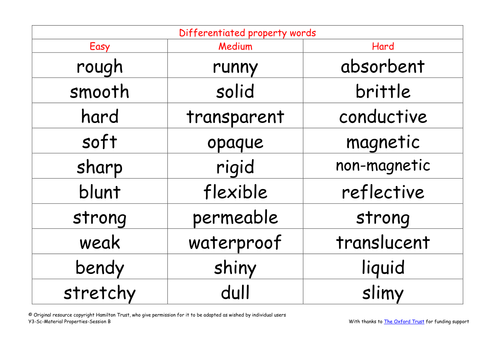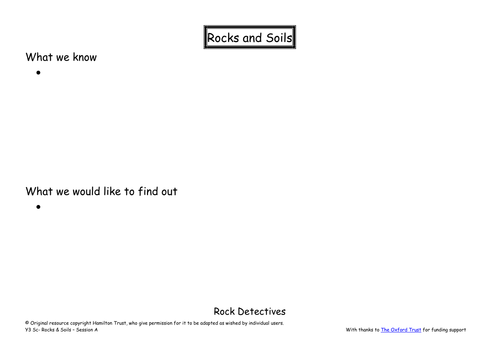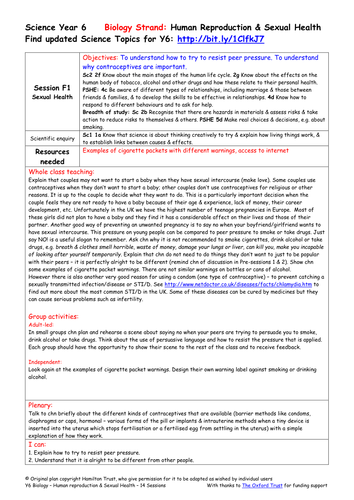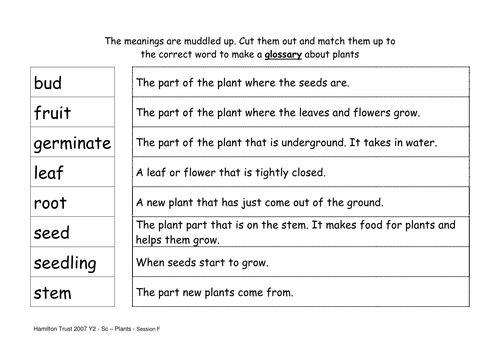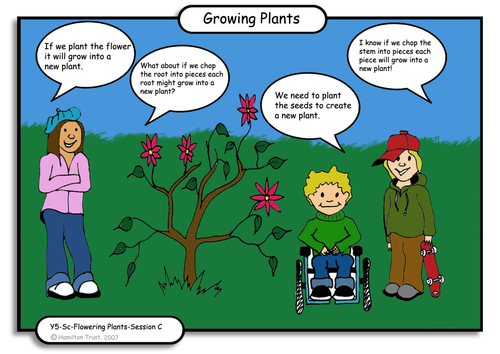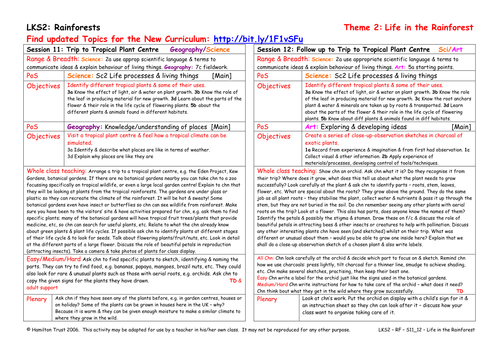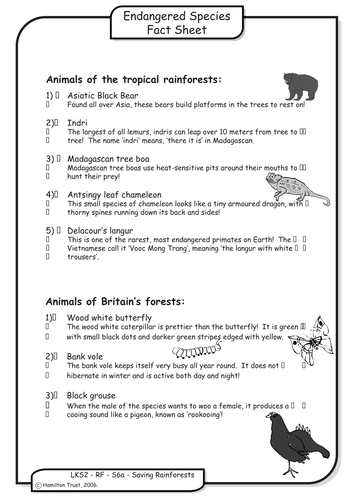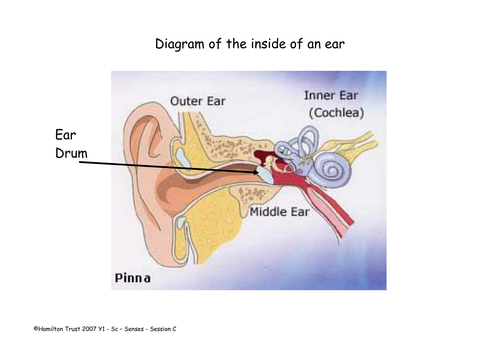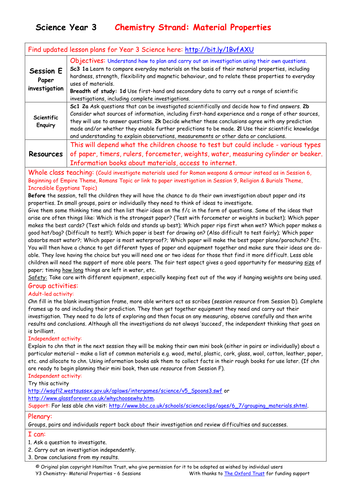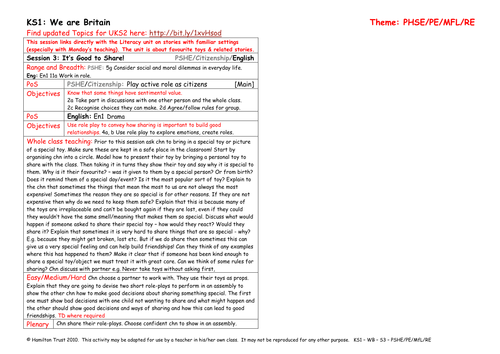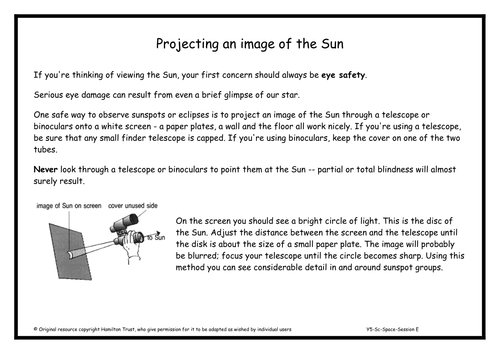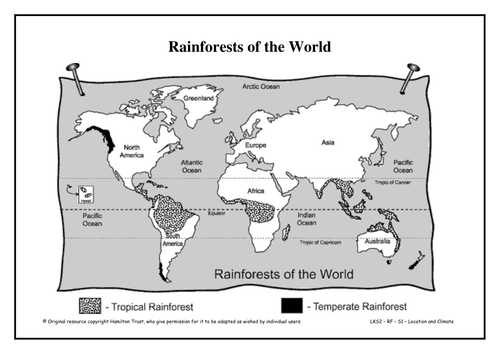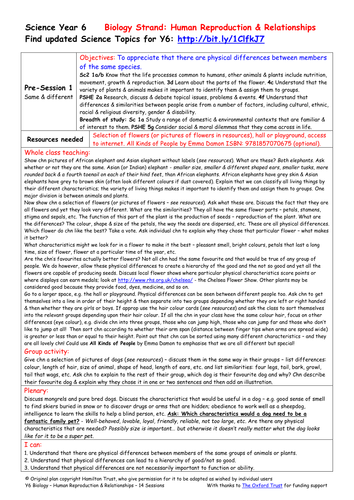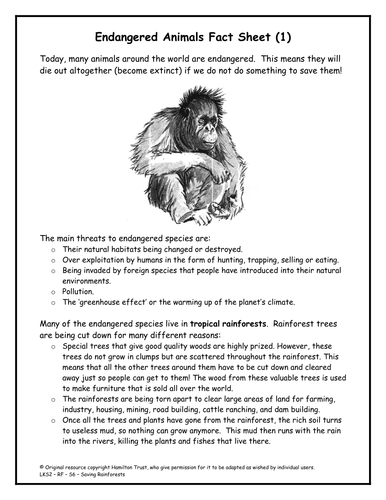
397Uploads
10045k+Views
11646k+Downloads
Elementary science

Everyday uses of materials
Make a water container out of a paper towel to get children thinking about the importance of understanding material properties. Look closely at some great new vocabulary to describe materials and make a large glossary for the classroom.
Suitable for Y3 pupils.

Rock detectives
Revisit vocabulary about properties of materials. Explore ‘what we know’ and ‘what we would like to know’. Go for a walk to identify how materials that come from rocks are used around the school.
Suitable for Y3 pupils.

Sexual health
Session 1 - Have discussion about contraceptives as a way of preventing an unwanted pregnancy, but also explain that they can help protect against sexually transmitted infections and diseases. Use drama to practise saying no to peer pressure for smoking, alcohol or drugs. Children design warning labels.
Session 2 - Discuss one sexually transmitted disease / infection in more detail – HIV / Aids. Ensure children understand difference between having the virus and the syndrome. Watch a video by children living with an HIV mother and discuss stigma involved with HIV / Aids. Look at statistics and discuss Memory Books and World Aids Day.
Suitable for Y6 pupils.

Collate findings
Finish the investigation started in Session B. Use the results to try and answer the questions about what plants need.
Match vocabulary to meanings to make a glossary. Assess what has been learnt.
Suitable for Y2 pupils.

Seed dispersal
Some seeds rattle, some roll, others are just bursting out all over the place! Children discover that plants disperse many seeds in different ways, what clues do their sizes, shapes, weights and textures give us about how they spread?
Suitable for Y5 pupils.

Trip to Tropical Plant Centre
In this session children get up close and personal with tropical plants on a visit to a botanical garden, zoo or even a large garden centre. Children find out more about conditions for growth and the life cycles of different plants.
Suitable for years 3 and 4.

Endangered Animals 2
In this session children are shown how to use search engines to search for images, and be selective about those that they choose. Children then continue to collect key word notes about their animal or plant.

Explore hearing
Discuss how sound enters the ears and the information is passed to the brain. Investigate the sounds animals make and why; relate to animal treatment. Activity to help children discriminate sounds in a group. Draw animal pictures and label with the sounds they make.
Suitable for Year 1 pupils.

Paper investigation
Children will plan and carry out an investigation about paper in small groups or pairs, testing questions they have thought of themselves. They will select the equipment and have a go at explaining results and drawing conclusions.
Suitable for Y3 pupils.

Tumble Driers
Children find out how a tumble drier works, list the advantages and disadvantages of tumble driers and then have a debate about whether they are a good or bad thing!

Star constellations
Children have stars in their eyes in this session as they find out more using internet research. They identify common constellations and discover how they are linked to horoscopes. How accurate are their star sign characteristics?
Suitable for Year 5 pupils.

Rainforests: Looking into deforestation
In the next ten years at the current rate half of the world’s rainforests will disappear. Children look in brief at the causes of deforestation before creating on maps a horrific view of the future.

Same and different
The first two sessions are an introduction to the Strand.
Session 1 - Help children appreciate that there are many physical differences between plants and animals (including humans) that are not necessarily good or bad nor important to function or ability.
Session 2 - Look in more detail at differences between people living in Britain. Discuss our multi-cultural society. Share poems in We are Britain by Benjamin Zephaniah to inspire children to write poems about themselves. Can children recognise their own Wanted poster?
Suitable for Y6 pupils.

Endangered Animals
In this session children find out that it’s not only the Orangu-tans that are endangered. Children select animals or plants from the lists provided and start to find out more about their chosen animal or plant.

